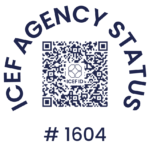Are you drawn to a career in public health from a desire to make a difference? Do you believe strongly in saving lives, improving healthcare solutions, and eradicating health inequalities? Whatever led you to consider this online MSc in Public Health, you’ll learn about the concepts and theories behind public health practice. You’ll also discover how these apply in real-world public health situations.
Over the course of the programme, you will gain deeper insights into the wider determinants of health and health inequalities, such as social, economic and environmental influences on health.
We will discuss how to measure, monitor and assess population health and health needs and how epidemiological and social research can inform public health interventions and strategies. We will also explore the wider healthcare landscapes, which stakeholders, organisations and health professionals they include as well as the political, ethical and legal dimensions within which public health is situated.







